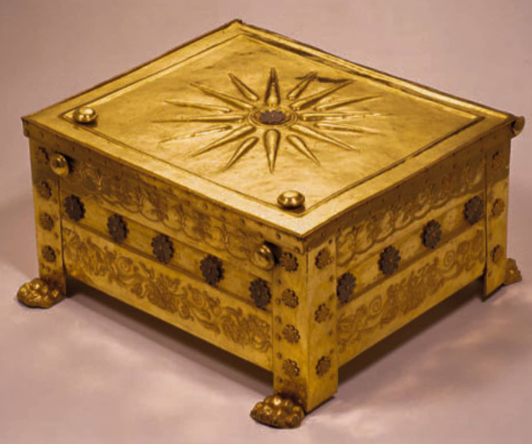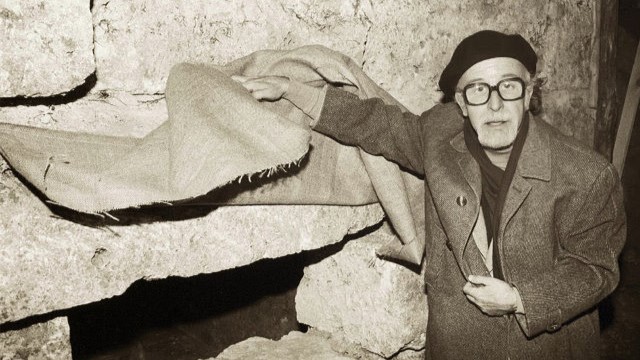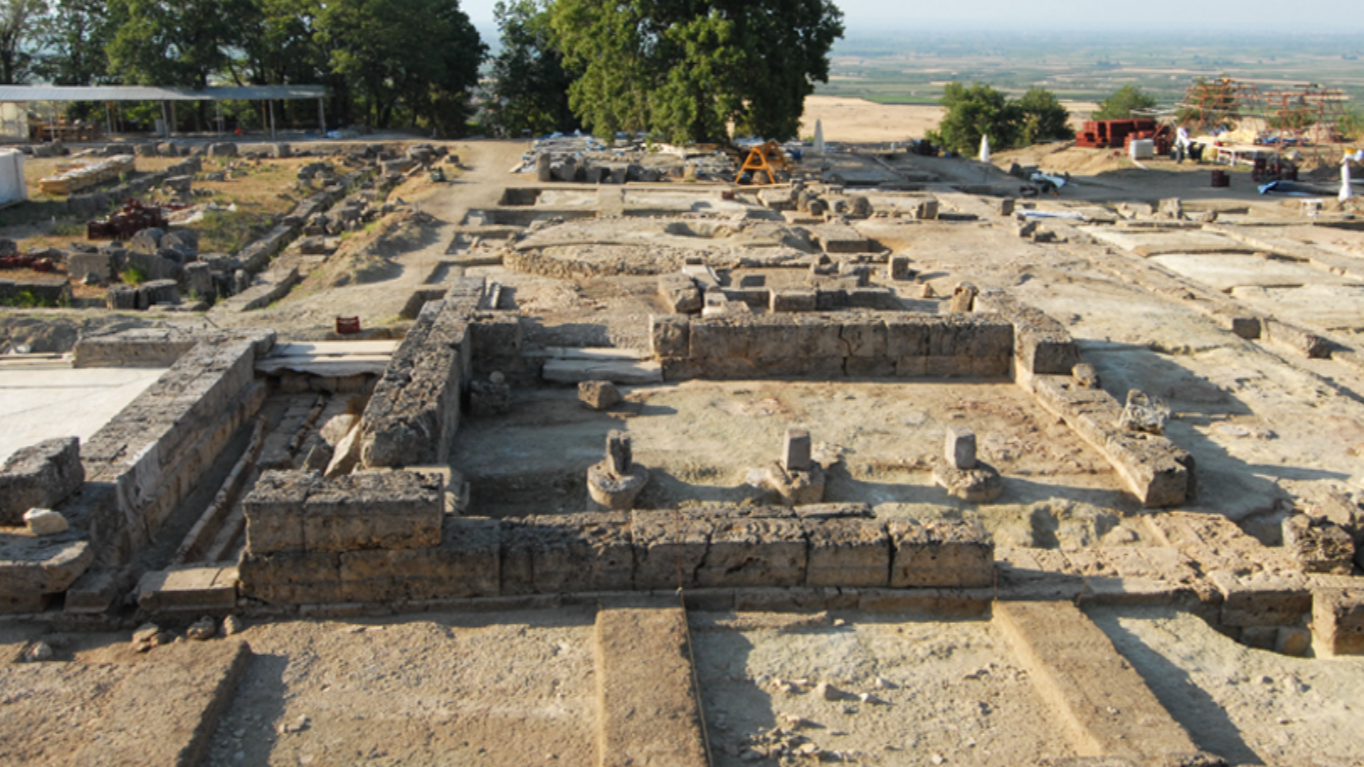In 1977, eminent Greek archaeologist Manolis Andronikos discovered the royal tombs of Vergina, a small town in northern Greece.
We take a look back at the history of the tombs and the Palace of Vergina.
What is the palace of Vergina?
The palace of Vergina, also known as the palace of Aigai, is one of the biggest and most ancient buildings of classical Greece.
It was the first capital of Macedonia and the burial ground for more than 300 Macedonian tumuli, including Alexander the Great’s father Philip II who reigned from (359 – 336 BC).

The Macedonian kingdom was designed and built for Phillip II, who was tragically assassinated in Aigai’s theatre.
Archaeological evidence indicates the palace was built on a raised outcrop and was visible from the whole Macedonian basin.
It was covered with high-quality marble stucco and was continuously inhabited from the Early Bronze Age to the Early Iron Age – housing many Macedonian Kings.
Manolis Andronikos:
Excavations at the Vergina Palace date back to 1861 by French archaeologist Leon Heuzey, who was sponsored by Napoleon III. Parts of the palace were discovered yet the archaeological site was abandoned.
From 1938-1940 excavations re-began and Greek archaeologist Manolis Andronikos worked as an assistant to the teacher of Konstantinos Romaios.

However, it was Andronikos’ long term and dedicated excavations in Megali Touma, beginning in 1952, which led him to the discovery of the royal tombs of Philip II, Alexander IV of Macedon, son of Alexander the Great and Roxana (Tomb III) in 1977.
During his time as an archaeologist, Andronikos had spread his excavation activity over a variety of regions in Northern Greece, including Veroia, Kilkis, Halkidiki and Thessaloniki.
